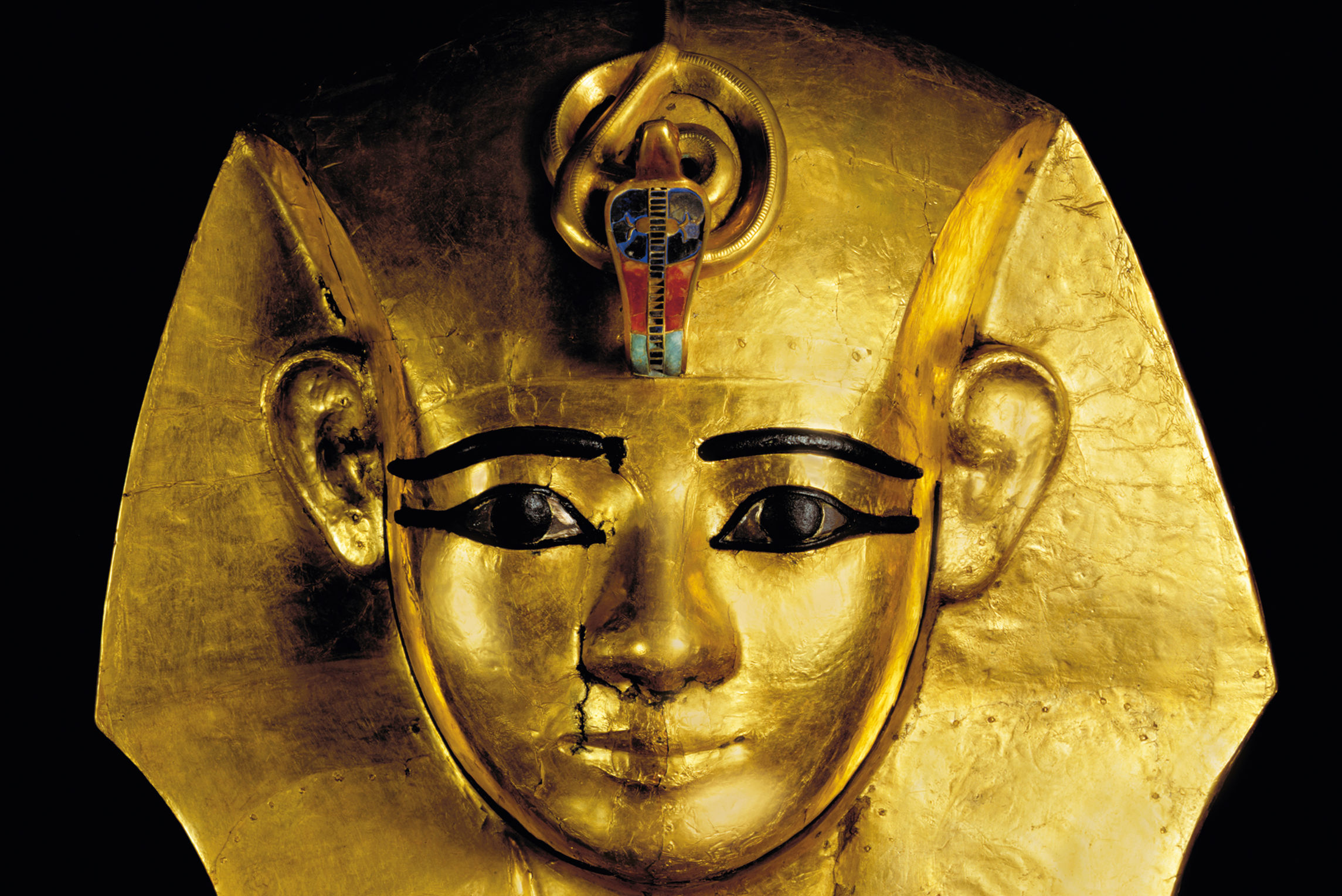Some of the Coolest Things to See at HMNS' New Egypt Exhibit
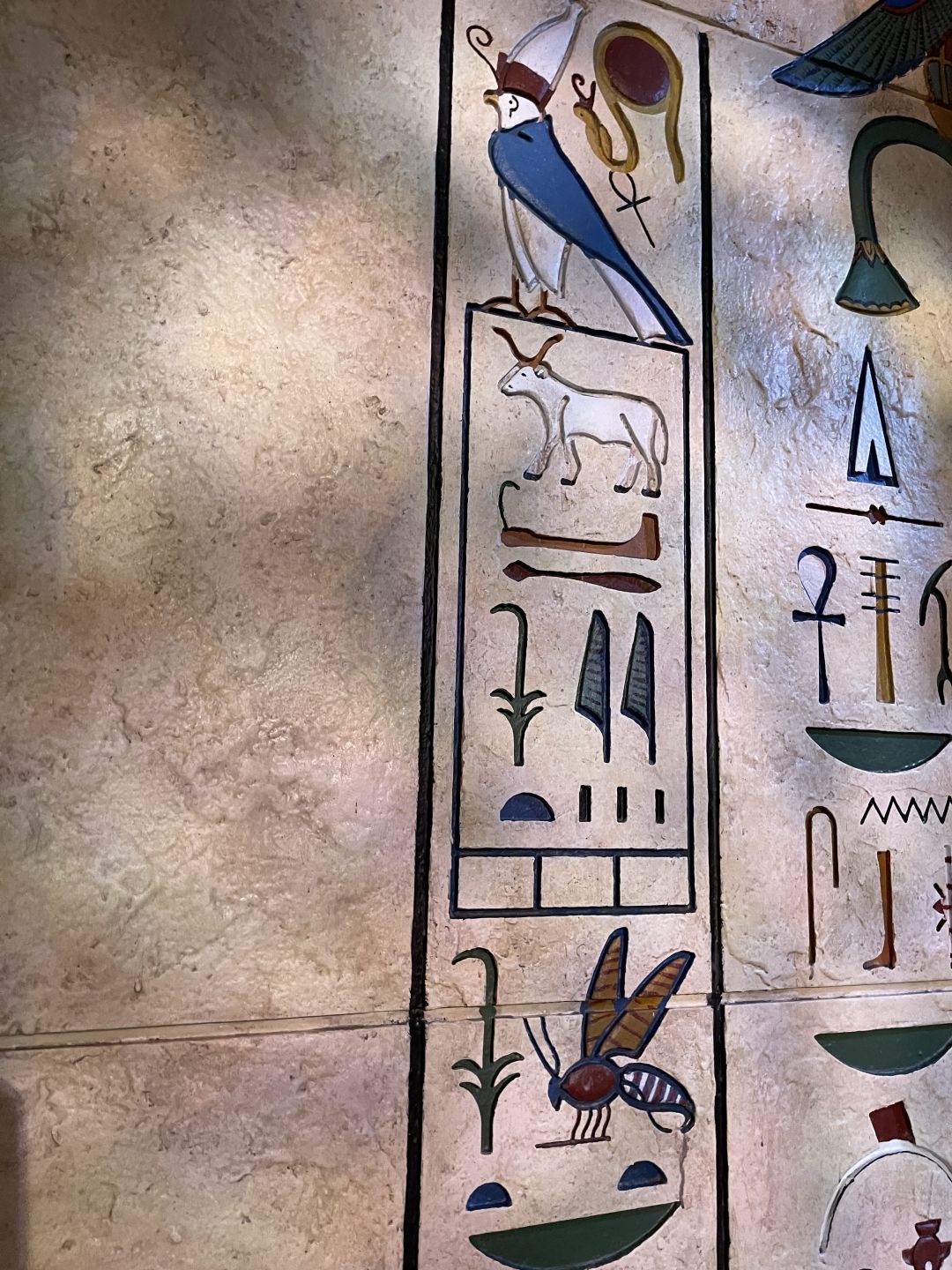
You can find a little Texas touch to the entrance of the newly renovated Hall of Ancient Egypt at the Houston Museum of Natural Science. Look closely at the longhorn near the top.
Image: Camilo Hannibal Smith
The Houston Museum of Natural Science has brought a state-of-the-art exhibit to the Bayou City. In all of its golden splendor, patrons can now check out in-real-life artifacts from the Ramses the Great and the Gold of the Pharaohs, or sit down for a virtual exploration of ancient Egypt.
Here are a few things that make the exhibit worth checking out, especially if you’re looking for something to do over the holiday.
Head of Colossal Statue of Ramses II
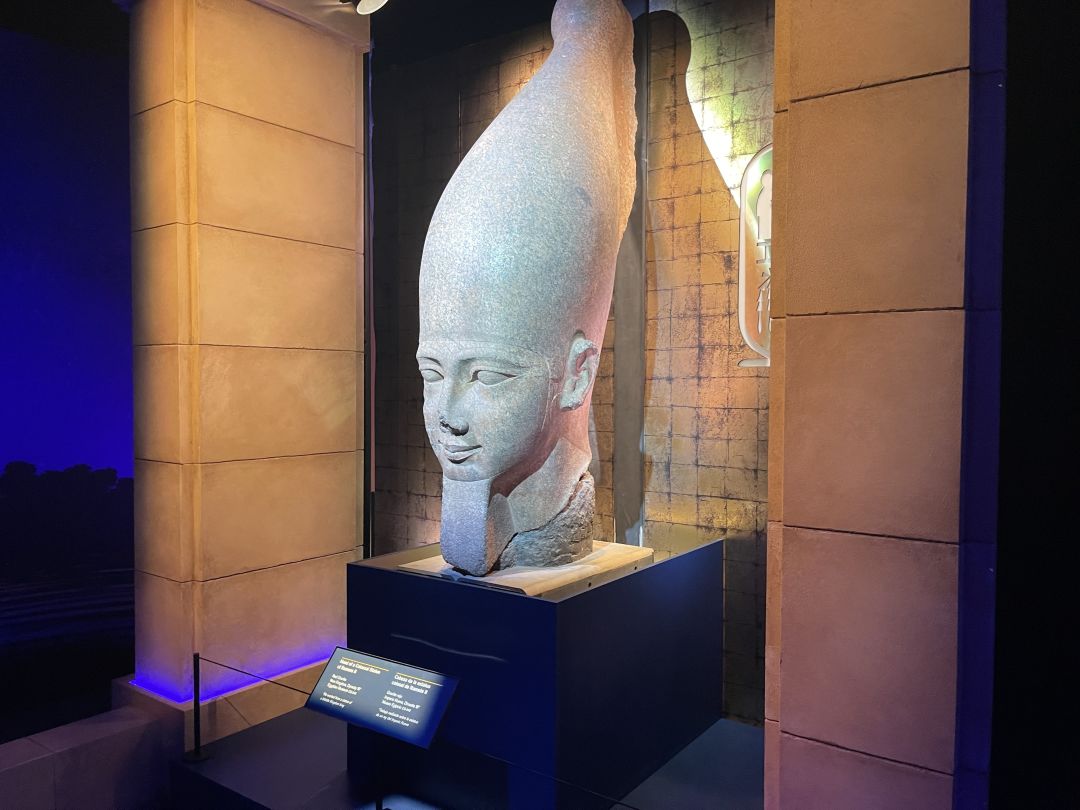
Head of Colossal Statue of Ramses II at the Houston Museum of Natural Science.
Image: Camilo Hannibal Smith
"Seeing the immensity of ancient Egyptian statues up close is one of the thrills of the new Ramses exhibit, which is on a 10-city tour."
Ancient Egyptian Jewelry
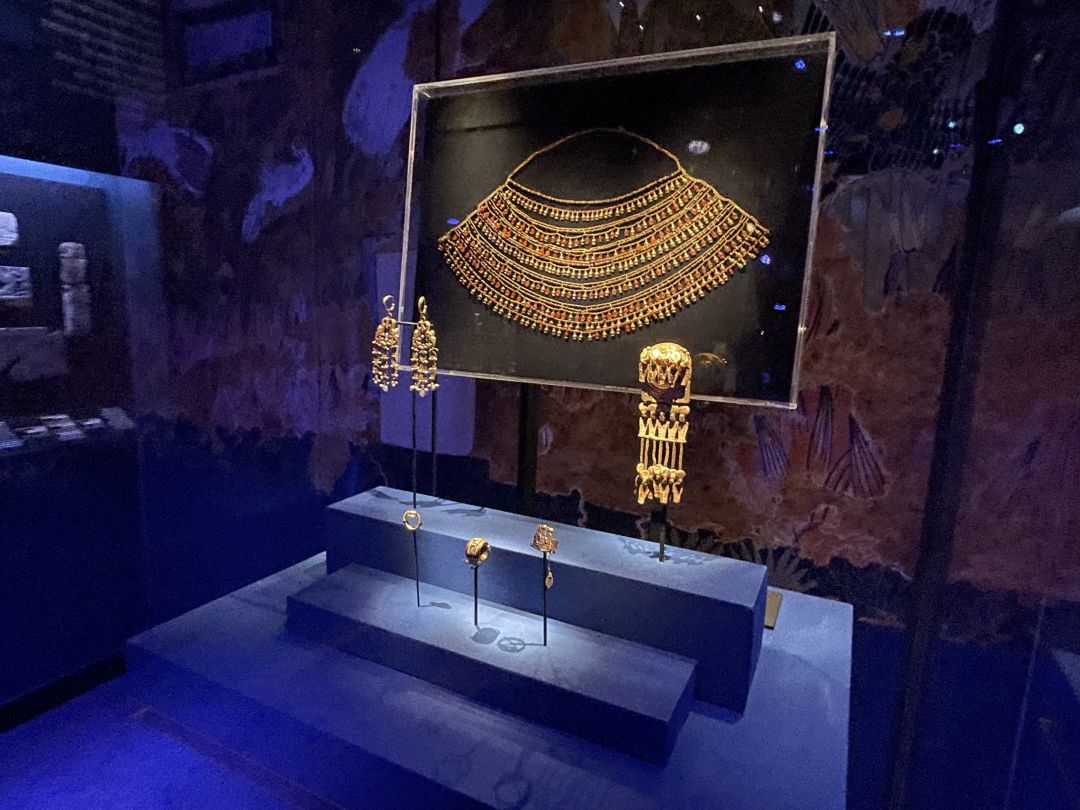
Jewelry on display in the museum section called "The Lives of Egyptian Woman".
Image: Camilo Hannibal Smith
"The drip, as they say, is real. The splendor of Egyptian accessories, many attached to the afterlife, are on full display."
Cat Mummy
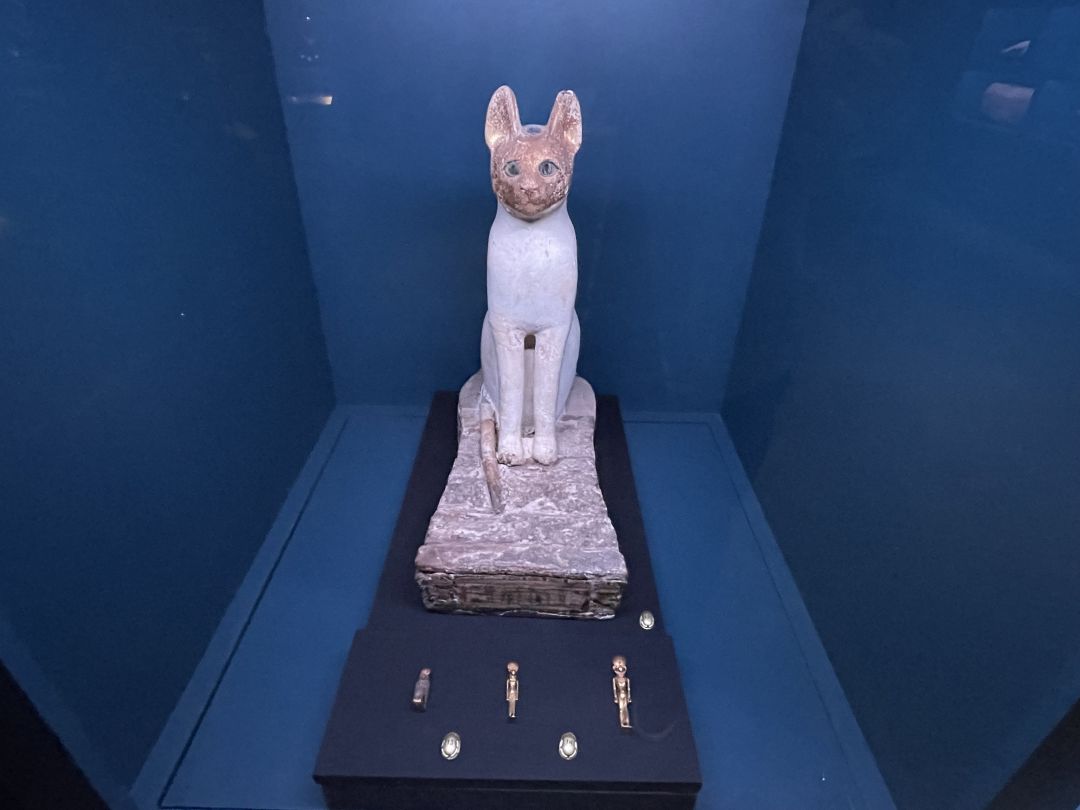
Ancient Egyptian cat statue at the Houston Museum of Natural Science.
Image: Camilo Hannibal Smith
"A little spooky, a little cute. Cats were ancient Egyptian's best friends"
The Face of the Pharoah
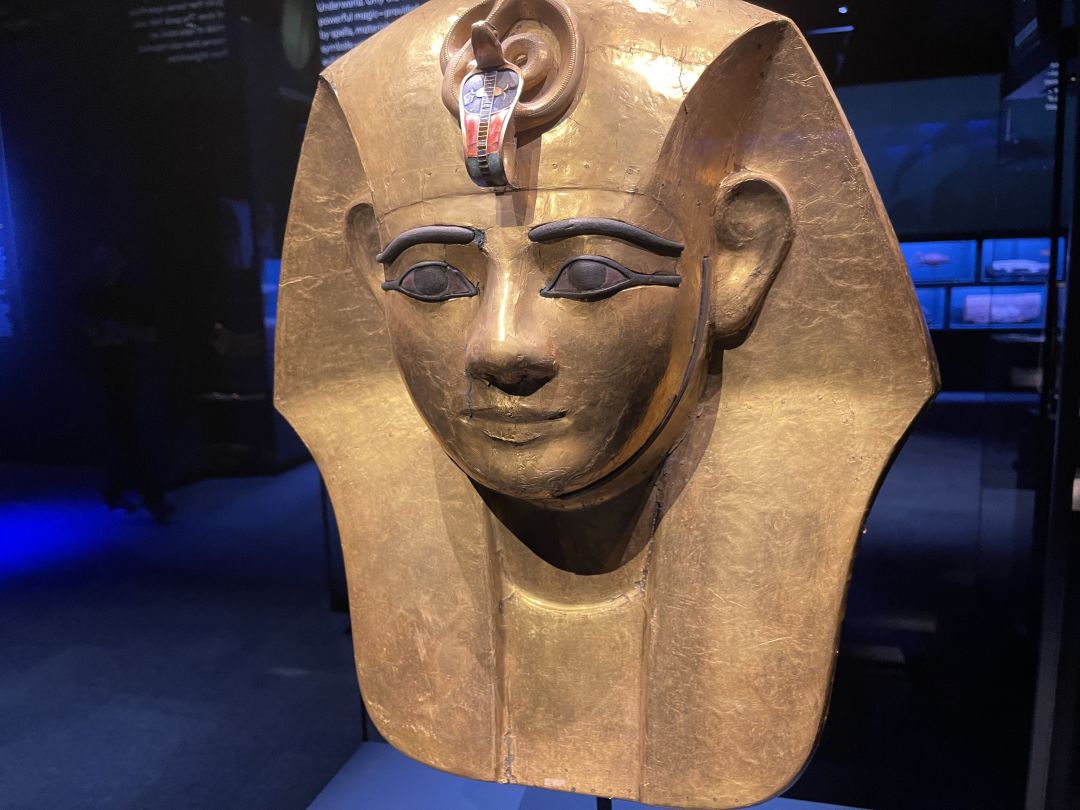
As it's stated in the exhibit, this gold funerary mask is "Placed over the mummy's head and shoulders, the mask allows the king's ba, or soul to recognize and reenter his body at the moment of his rebirth in the Afterlife."
Image: Camilo Hannibal Smith
"These are probably the most iconic images we have of ancient Egyptians. There are several masks you can see as part of the exhibit."
Coffin and Mini-coffins of Sheshonq II
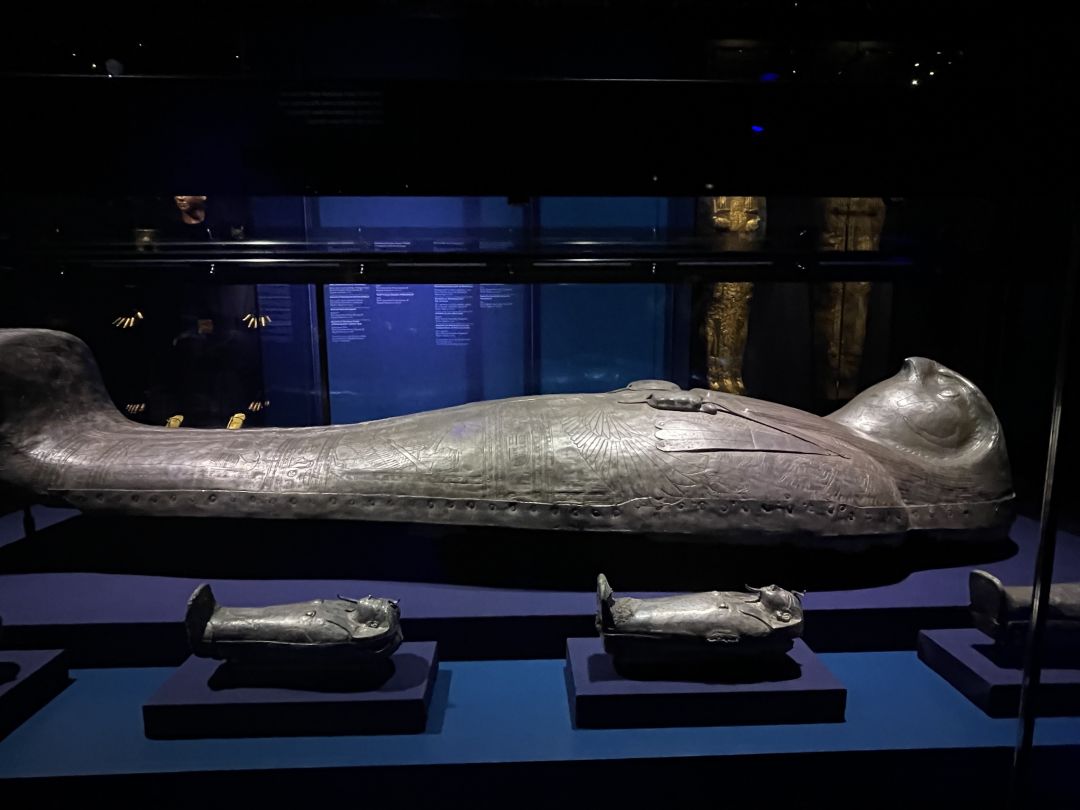
The coffin and Canopic coffinettes of Sheshonq II at the Houston Museum of Natural Science.
Image: Camilo Hannibal Smith
"Sheshonq II was a Pharaoh whose coffin was found in the 1930s with these smaller mini-coffins."
